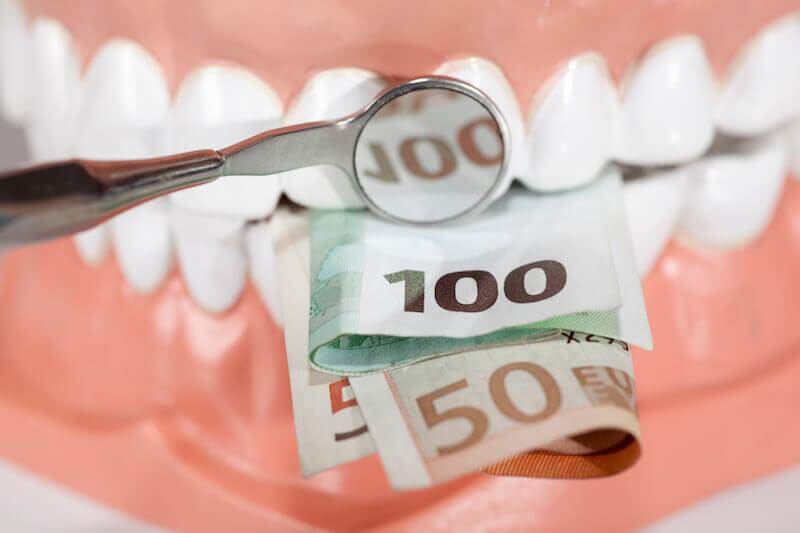Types of Dental Implants Cost
If you are thinking about getting dental implants, you may be curious about how much money you would need to pay for them. The price of dental implants can change significantly based not just on the type of implant used but also on a number of other considerations. Let’s explore the different types of dental implants cost so that you can make an informed decision.
Table of contents
Types of Dental Implants
Let’s take a deeper look at the various dental implant varieties before getting into pricing:
Endosteal Implants
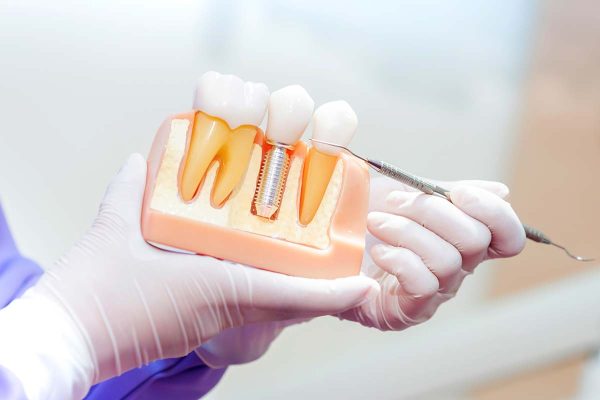
The most prevalent kind of dental implant is endosteal. They serve to restore the lost tooth’s root and are surgically implanted right into the jawbone.
Also endosteal implants can be used to support bridges, dentures, and individual teeth.
Subperiosteal Implants
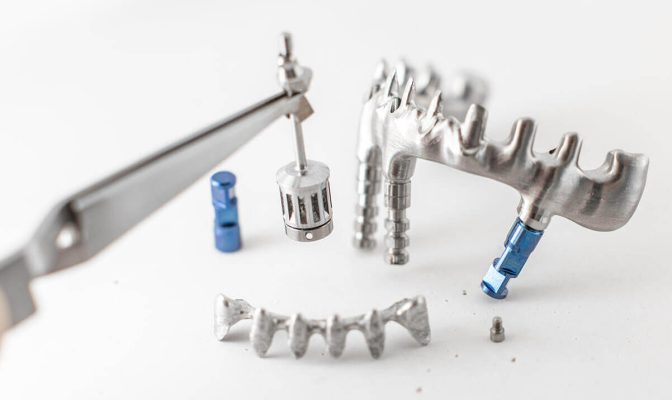
Subperiosteal implants are positioned above the jawbone but beneath the gum. When there is not enough bone to sustain an endosteal implant, they are employed. Bridges and dentures are frequently supported by subperiosteal implants.
Transosteal Implants
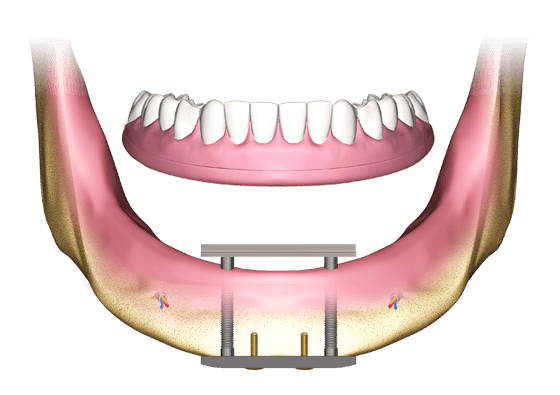
Transosteal implants are put in from the bottom of the jawbone to the top, passing through the bone. They are utilized when other implant types cannot be used because of insufficient bone volume or density.
Zygomatic Implants
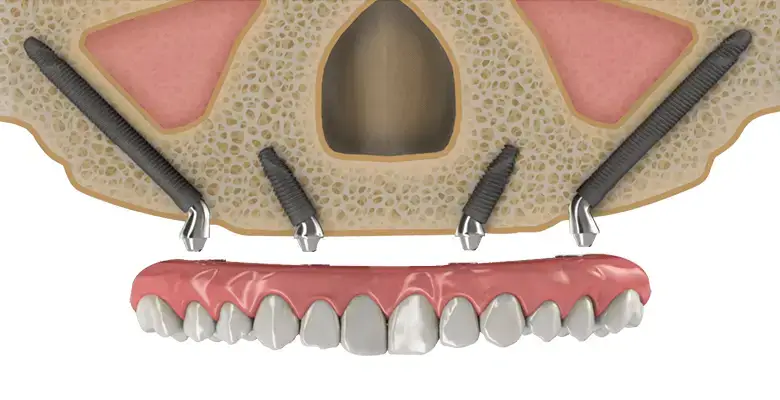
A unique kind of implant called a zygomatic implant is anchored into the cheekbone rather than the jawbone. They are often utilized by individuals whose upper jaw lacks sufficient bone to support conventional implants.
All-on-4 Implants
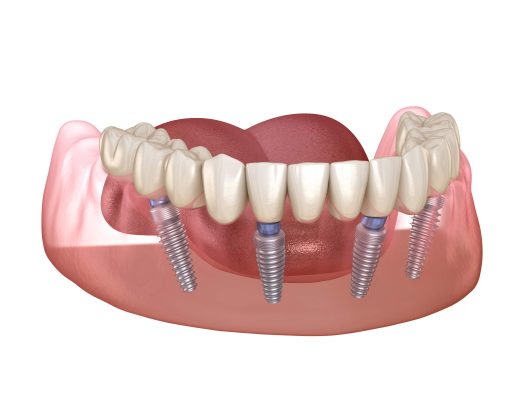
A whole arch of teeth may be supported by just four implants when using the all-on-4 technique. Patients who are lacking all of their teeth in one or both jaws are the usual candidates for these dental prosthetics.
Cost of Dental Implants
The types of dental implants cost varies depending on several factors, including the type of implant, the location of the implant, and the amount of preparatory work needed.
Also on average, you can expect to pay:
| Type of Implant | Single Tooth Cost | Full Mouth Restoration Cost |
| Endosteal | $1,000 – $3,000 | $25,000 – $50,000 |
| Subperiosteal | $2,000 – $4,000 | $30,000 – $60,000 |
| Transosteal | $4,000 – $6,000 | $50,000 – $100,000 |
| Zygomatic | $6,000 – $12,000 | $50,000 – $100,000 |
| All-on-4 | N/A | $15,000 – $35,000 |
Endosteal Implants
- Single tooth: $1,000 to $3,000
- Full mouth restoration: $25,000 to $50,000
Subperiosteal Implants
- Single tooth: $2,000 to $4,000
- Full mouth restoration: $30,000 to $60,000
Transosteal Implants
- Single tooth: $4,000 to $6,000
- Full mouth restoration: $50,000 to $100,000
Zygomatic Implants
- Single tooth: $6,000 to $12,000
- Full mouth restoration: $50,000 to $100,000
All-on-4 Implants
- Full mouth restoration: $15,000 to $35,000
Additional Costs
There are other fees to consider, in addition to the expense of the implant procedure itself, including the following:
Cost of Dental Implant Surgery
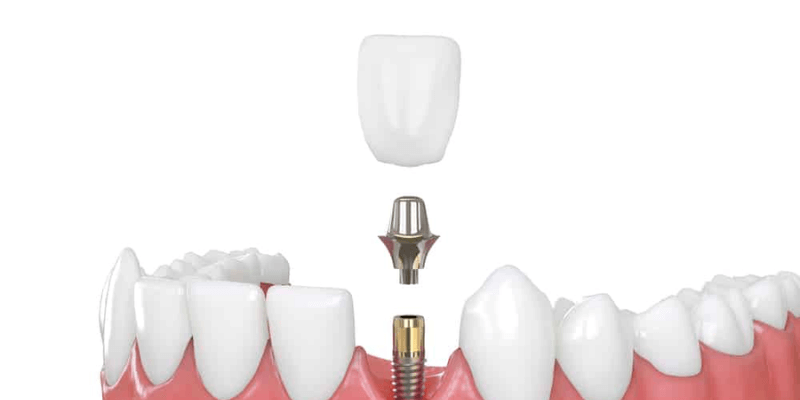
The types of dental implants cost surgery will depend on the complexity of the procedure and the amount of preparatory work needed.
The cost of surgical procedures typically ranges from $1,000 to $3,000, with the average cost falling somewhere in that range.
Cost of Dental Implant Restoration
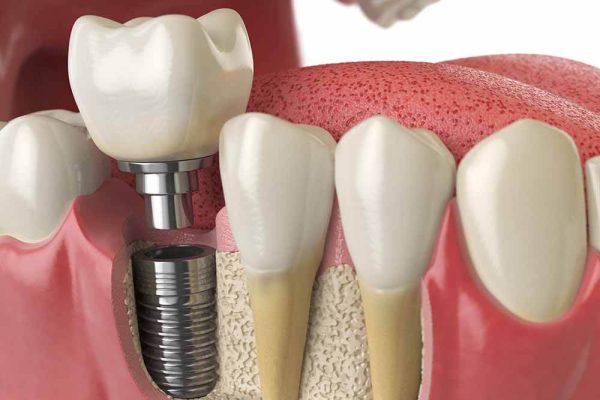
The type of restoration required will determine how much the dental implant repair would cost. As an illustration, the price of a single implant-supported crown can range from $1,000 to $3,000, while the price of a whole arch of implant-supported dentures can range from $10,000 to $50,000.
Cost of Dental Implant Maintenance
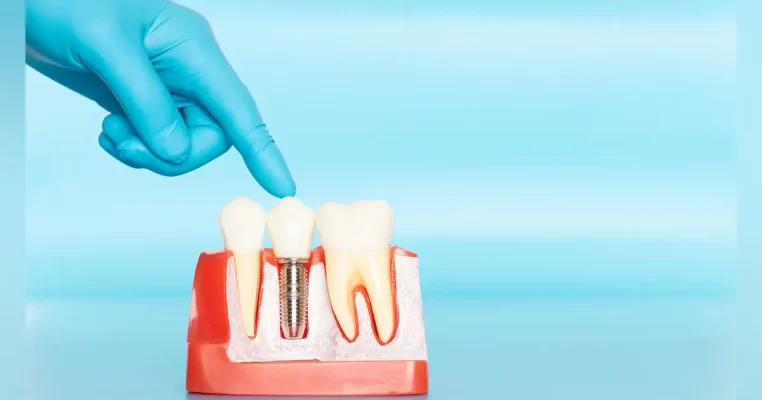
To guarantee that they endure a long period, dental implants need to be maintained often. Periodic check-ups, cleanings, and x-rays could be part of this.
You may anticipate spending between $100 and $500 a year on maintenance, depending on the type of implant and the quantity of maintenance required.
Factors Affecting the Cost of Dental Implants
Dental implants can fluctuate in price based on a number of variables, such as the implant’s placement, its kind, and the amount of pre-operative treatment required.
Finding a Dental Implant Specialist
Choosing the right dental implant specialist is important to ensure a successful procedure. In this section, we’ll offer some tips for finding a qualified and experienced dental implant specialist.
Payment Options

It might be intimidating to consider the expense of dental implants; however, there are various financing methods available:
Insurance Coverage for Dental Implants
Most dental insurance plans do not cover the types of dental implants cost, but some plans may cover a portion of the cost. Check with your insurance provider to see if they offer any coverage.
Financing Options for Dental Implants
There are a lot of different financing options available for dental implants that you may get from different dental clinics.
This can involve installment payment arrangements, credit card payments, or even loans for medical expenses. Make it a point to inquire with your dentist about the various payment choices.
Savings Plans for Dental Implants
There are several dental offices that provide discount programs that are tailored exclusively for dental implants.
It’s possible that these programs will provide you with discounts on implants and other dental procedures. Make it a point to inquire about any savings options that may be available from your dentist.
Youtube Video About Types of Dental Implants Cost
Final Thought
Dental implants are a great option for replacing missing teeth, but they can be expensive. The cost of dental implants varies depending on the types of dental implants cost and several other factors.
You will be able to make an educated choice about whether or not dental implants are suited for you after you have a solid grasp of the costs involved.
When trying to obtain an exact estimate of the cost of your dental implant process, it is imperative that you confer with your dentist.
FAQ
Dental implants can be placed at any age, but patients must be in good general health and have a fully grown jawbone. To decide if you are a good candidate for dental implants, your dentist will assess your unique situation.
Local anaesthetic is frequently used during dental implant surgery so that patients experience no discomfort. Patients may suffer some soreness and edema following surgery, but this is typically treatable with over-the-counter pain relievers.
Dental implants can last a lifetime if they are properly maintained and cared for. To protect the lifespan of your dental implants, it’s crucial to maintain proper oral hygiene and schedule frequent dental checkups.
Smoking can raise the chance of issues, such as delayed healing and implant failure, both before and after dental implant surgery. Smokers may still have dental implants, though, provided they’re dedicated to giving up the habit and comply with their dentist’s post-treatment recommendations.
Dental implants are not often covered by dental insurance policies, however some may provide partial coverage. To learn more about your coverage choices, speak with your insurance company. Additionally, certain dental offices could provide financing solutions to lower the price of dental implants.




